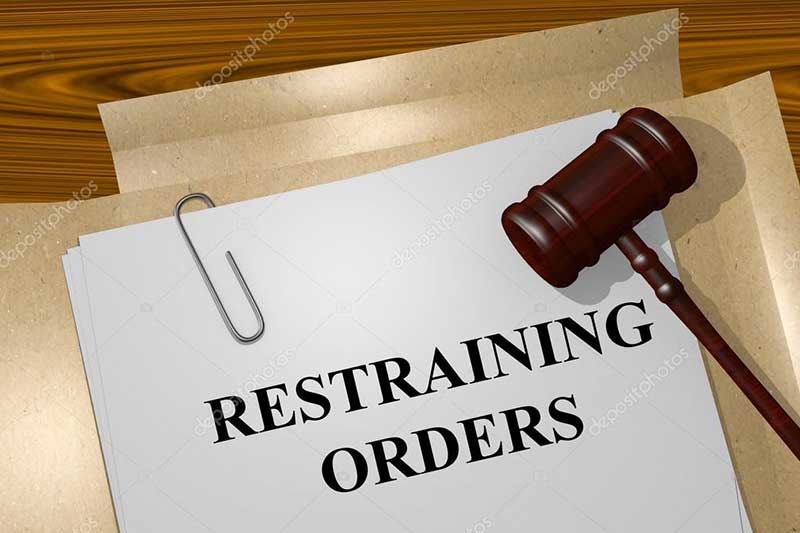The Texas Divorce Process
Divorce Attorney Lindsey J. Wilson—what to expect regarding the
Texas Divorce Process
We have broken down the divorce process into ten steps to give you a legal perspective of what happens when you decide to divorce. Of course every divorce is different. As a result, some steps may last longer or be more complex in some cases than in others. If you have questions about the divorce process, please reach out to us and schedule a consultation. We’ll be glad to answer your questions.
Steps of the Texas Divorce Process
Step 1 — Preparing to File for Divorce
Meeting with a lawyer and deciding on grounds for divorce.

During your meeting with the attorney, you will discuss and decide on grounds for divorce. You will also address other matters such as property division. If you have children, then you must make provisions for child custody, visitation and child support. In some cases, spousal support may also be an issue.
This meeting allows you to address these various legal areas and is also an opportunity to explain your goals for divorce and your priorities. The lawyer also goes over any actions you need to take, such as gathering information, inventorying assets and copying important documents.
Step 2 — Filing for Divorce

Divorce petition.
The attorney will file a divorce petition on your behalf. To be eligible to file for a Texas divorce, you must have lived in Texas for at least six months. You also must file in the county where you reside and must have lived there for at least 90 days.
Step 3 — Serving the Divorce Papers to Your Spouse

Notice of divorce.
Your attorney will handle serving divorce papers to your spouse. The papers contain your proposed grounds for divorce and provisions for child custody, support, visitation, property division and in some cases, alimony.
Step 4 — Responding to the Divorce Petition

The response.
After serving the papers, your spouse has 60 days to respond and can agree to all the provisions or request changes. If your spouse fails to respond, the marriage dissolution can be finalized without their consent.
Step 5 — Procuring Temporary Divorce Orders

Temporary orders.
Not every case requires temporary orders. However, the court may agree to temporary divorce orders that instruct how to deal with child custody and management of assets prior to finalizing the divorce. Temporary orders can also address safety, if it is an issue.
Step 6 — Completing Initial Disclosures

Disclosing information.
During disclosure, the spouses make important information available, which may include medical records, documents and testimonies that will be subject to arguments during the case. Financial disclosure would include income, assets and liabilities.
Step 7 — Going Through a Discovery Period

Discovery.
Discovery is the formal process used to gather evidence and information from the other spouse. For example, your attorney may file a motion for discovery that includes interrogatories. These are lists of questions that your spouse must answer. Many cases settle without having to go through discovery. For the most part, discovery occurs when attorneys are preparing to present arguments regarding disputed issues in court.
Step 8 — Drafting a Divorce Settlement Agreement

Settlement.
You can reach a settlement if you and your spouse can agree on terms for property division (asset and debt division), child custody, visitation, child support, spousal support and legal fees. Often, legal counsels will negotiate on behalf of their clients to help spouses arrive at a settlement.
Step 9 — Mediation or Attending the Trial (Hearing)
 Mediation, trial or hearing.
Mediation, trial or hearing.
If you reach a settlement, the trial or final hearing may be more of a formality to approve the settlement agreement. However, if you have contested issues, then some courts order mediation in an attempt to resolve them outside of trial. If any issues remain unresolved after mediation, you would address them during the trial or hearing. Both lawyers will present evidence and call witnesses to argue their side of the case. The goal is usually to resolve as many disputes as possible prior to trial.
Step 10 — Finalizing the Divorce

Final decree.
At the conclusion of a trial or divorce settlement, there is a 60 days waiting period in Texas before courts can finalize a divorce. After the waiting period ends, the judge can sign the final decree and have it filed through the court clerk. At this point, the divorce is final. You will receive a copy of the final decree. Afterward, your attorney can help you with other divorce related matters such as transfer of property rights or dividing financial accounts, and so on.





What Our Clients Are Saying
Genuine Care
I would highly recommend Lindsey Wilson. During one of the worst years of my life while going through a painful divorce, Lindsey and her associates were extremely helpful. She took the time to understand the details of my divorce and provided not only professional services, but genuine care about what I was going through. Anyone who’s ever been through a divorce has a “story”, and I won’t take up the space to list my mine. lol. I will only say that I am very grateful that Lindsey was my attorney. She has the experience, the knowledge, and the understanding to help you with any of your divorce or family law needs. I hope you don’t need a divorce lawyer, but if you do, call Lindsey. ~ Chancy P.
Going Through Divorce
Divorce is a life-changing decision. It is important to understand the steps involved so you can make the right choices. Your attorney can answer your questions, provide sound legal advice and guide you through the process. Couples with children will need to reach agreements regarding child custody, support and visitation. Property division also involves vital decision-making, whether you have a simple or complex marital estate. Many issues need to be addressed prior to the conclusion of the case.
Get in Touch

Our location
Law Office of Lindsey J. Wilson
![]() 4305 Windsor Centre Trl, Ste 500
4305 Windsor Centre Trl, Ste 500
Flower Mound, Tx 75028
Send a Message
How to Get Started
We can help you work out all the details of your divorce. Our firm can be reached at 469.993.6091 or through our online form.




